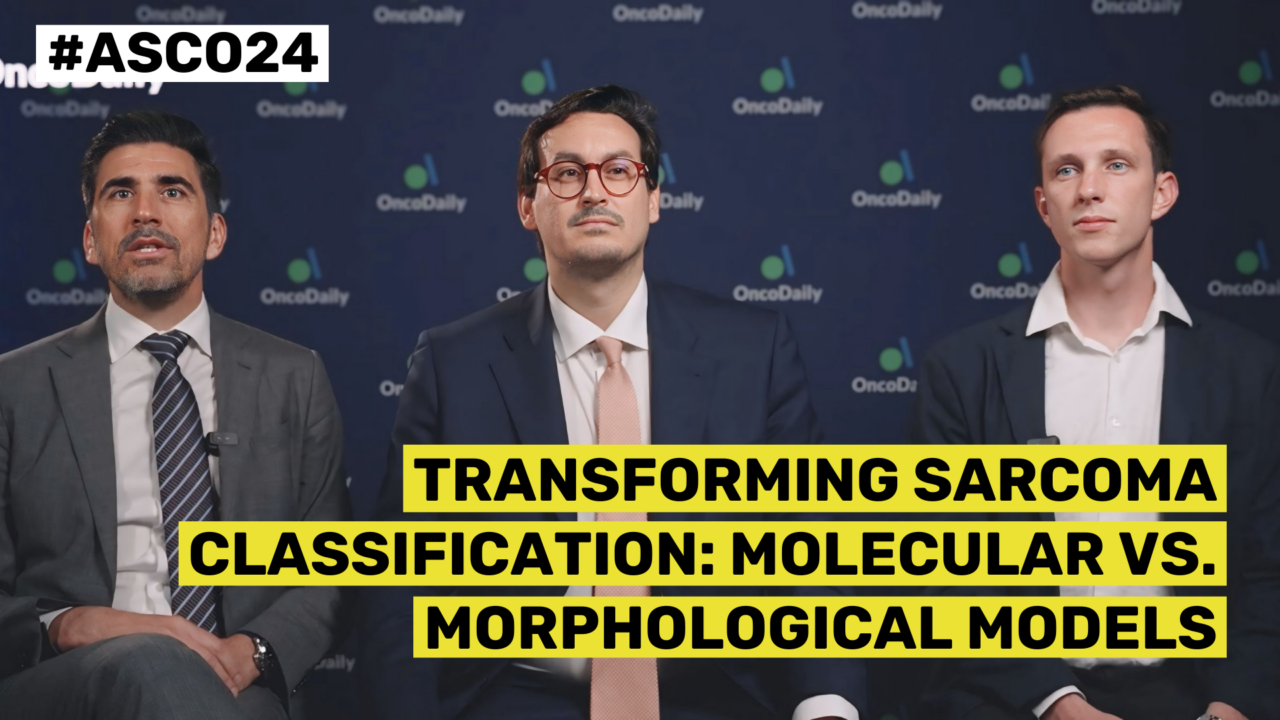The American Society of Clinical Oncology (ASCO) Annual Meeting is one of the largest and most prestigious conferences in the field of oncology. This year, the meeting took place from May 31 to June 4 in Chicago, Illinois. The event gathers oncologists, researchers, and healthcare professionals from around the world to discuss the latest advancements in cancer research, treatment, and patient care. Keynote sessions, research presentations, and panel discussions are typically part of the agenda, providing attendees with valuable insights into emerging trends and innovations in oncology.
This year, OncoDaily was at ASCO 2024 for the first time covering the meeting on-site. We had the pleasure of interviewing researchers who summarized the highlights of their work.
In this video, Hugo Vasques, Miguel Esperança-Martins, and Manuel Ravasqueira from Lisbon present their innovative research on ‘New soft tissue sarcoma (STS) transcriptomic clusters to unveil STS subsets with unique biological characteristics and refine the accuracy of overall survival (OS) prediction.‘
Hello everyone, my name is Hugo Vazquez, here we have Miguel Esperança-Martins and Manuel Ravasqueira. We are from Portugal, from Lisbon, and we present three university institutions that will get together to study the sarcomas. So our work is a little bit disruptive and a little bit provocative.
As a matter of fact, we think that the current Iso pathological classification in sarcomas has several conceptual caveats. As a matter of fact, it is eminently morphologically based and based on the comparison with normal tissue counterparts. It’s also intrinsically complex and prone to errors.
And besides that, it fragments sarcomas in more than 80 subtypes. Adding this fragmentation to the rarity of sarcomas naturally hinders drug discovery and drug development, which are much needed in sarcomas. And so we think that the classification should evolve from a more Iso pathological model to a molecularly based model.
So as a matter of fact, we identified patients with the most common subtypes of soft tissue sarcomas, namely undifferentiated pleomorphic sarcomas, dedifferentiated liposarcomas and also high-grade leiomyosarcomas. We extracted DNA and RNA and then performed RNA sequencing using the new Foundation1 RNA Seq Kit. Afterwards, and with all the data coming from the RNA sequencing study, we used machine learning algorithms, namely an unsupervised machine learning algorithm called consensus clustering.
We then identified four clusters and we validated that the perfect number for clusters and the ideal one would be four. We performed differential gene expression evaluation per transcriptomic cluster, which allowed us to portray and characterize each one of them. We then tried to understand within our cohort whether those clusters had or not a prognostic value.
And we identified that three of the four transcriptomic clusters had indeed a negative prognostic value. We then also tried to identify by performing an ANOVA over Cox proportional hazards model test among different variables, including the Iso pathological classification, which one could better predict overall survival. And as a matter of fact, our transcriptomic clusters were the only variable that has shown a statistically significant correlation with overall survival.
We then validated our results with the TCGA-SARC dataset. And as a matter of fact, we understood that within the TCGA-SARC dataset, the samples were mainly enriched in cluster 1 and cluster 3, with cluster 3 showing a worse prognosis. And then we also performed an ANOVA test over a Cox proportional hazards model and again identified transcriptomic clusters as the only variable with a statistically significant correlation with overall survival, again overcoming Iso pathological classification.
Besides this prognostic value, our clusters also have, as I already mentioned, several alterations, molecular alterations that may be potentially predictive of response to certain modalities of therapy. Now we are expecting to validate our results with other datasets and integrate novel artificial intelligence models into our results. And we expect to make a change into the sarcoma future.
More videos and content from ASCO 2024 on OncoDaily.


